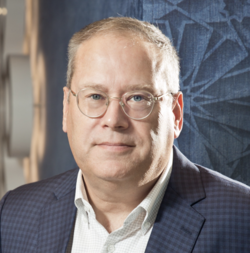APEC’s Role in the Evolving Asia-Pacific Order
APEC’s Role in the Evolving Asia-Pacific Order
Friday, October 6, 202312:00 PM - 1:30 PM (Pacific)
Encina Hall, Third Floor, Central, C330
616 Jane Stanford Way, Stanford, CA 94305

*Registration for this event has closed. Secure your spot at the upcoming events in our fall series Exploring APEC’s Role in Facilitating Regional Cooperation.
Ever since its informal beginnings in late 1989, the Asia-Pacific Economic Cooperation (APEC) forum has been a central hub for economic engagement and cooperation around the Pacific Rim, both shaping and being shaped by developments in the region over an extraordinary period of trade and economic expansion. As leaders from 21 APEC member economies prepare to meet in San Francisco in November, we will explore APEC's evolution over its three-decade-plus history to consider both its role and contributions in the Asia-Pacific region to date, as well as explore its challenges and relevance in the region going forward. Is APEC still hitting its regional economic cooperation target and how might APEC better achieve its goals?
Speakers

Aida Safinaz Allias, Minister for Economic Affairs, Embassy of Malaysia to the United States; Former APEC Senior Official for Malaysia.
Ms. Aida Safinaz Allias currently serves as the Minister (Economic Affairs) at the Embassy of Malaysia in Washington, D.C. This is her second time in D.C., her first being during her intern days at the US-Asia Institute in DC circa the mid-90s.
She has served in the Malaysian Ministry of International Trade & Industry (MITI) for 23 years, since the year 2000, starting at the Industry Wing in various capacities including with the iron & steel, E&E, and investment units, before crossing over to the Trade Wing at the Multilateral Trade Policy and Negotiations Division. Subsequently, she was posted to the Permanent Mission of Malaysia to the WTO, Geneva, Switzerland as the Economic Counsellor in charge of Services trade negotiations from 2005-2007.
Following that, she returned to HQ and was posted at the FTA Coordination Division as the Principal Assistant Director (2007-2009). From 2011-2013, she gained her first experience in APEC work at the APEC Division in MITI as the Malaysian Lead at the Committee on Trade and Investment (CTI), during which she had the opportunity to serve as the Market Access Group (MAG) Convenor.
Pursuant to that she was again posted as Minister Counsellor (Economic Affairs) at the Malaysian High Commission in New Delhi from 2013-2016. Later, she returned to MITI HQ as Director of the Services Sector Development Division before she was tasked to lead the Substantive Unit of the APEC 2020 National Secretariat in 2018 when it was established for the Malaysian hosting of APEC 2020. Ms. Allias was then promoted to Senior Director of APEC Division in 2019 (also overseeing the APEC 2020 National Secretariat, which was incidental to the successful hosting of APEC 2020). From 2019 - 2021, she also served as the Malaysian APEC Senior Official. During the hosting of APEC 2020, she led the Malaysian Delegation to the successful drafting and conclusion of many important consensus documents at APEC, the most notable being the APEC Putrajaya Vision 2040.
She received a Bachelor of Arts (B.A) in International Relations from Syracuse University, New York. She also holds a Diploma in Public Administration from the Malaysian National Public Administration Institute (INTAN).

Amb. Kurt Tong, Managing Partner, The Asia Group; Former U.S. Ambassador for APEC; Former U.S. Consul General and Chief of Mission in Hong Kong and Macau.
Ambassador Kurt Tong is Managing Partner and member of the Executive Committee at The Asia Group, where he leads consulting teams focused on Japan, China, and Hong Kong, and on East Asia regional policy matters. He also leads the firm’s innovative thought leadership programs. A leading expert in diplomacy and economic affairs in East Asia, Ambassador Tong brings thirty years of experience in the Department of State as a career Foreign Service Officer and member of the Senior Foreign Service.
Moderator

Michael Beeman, Former Assistant U.S. Trade Representative for Japan, Korea and APEC at the Office of the U.S. Trade Representative; Visiting Scholar at Shorenstein APARC.
Michael Beeman is a Visiting Scholar during 2023 at Shorenstein APARC. Previously, he served as Assistant U.S. Trade Representative for Japan, Korea, and APEC at the Office of the U.S. Trade Representative (USTR). In that role, he led the renegotiation of the U.S.-Korea Free Trade Agreement and the U.S.-Japan Trade Agreement, among other initiatives. After joining the U.S. government in 1998, he served in various other capacities for the Department of Commerce, for the U.S. Executive Director to the World Bank, and for USTR. He received his D.Phil. (Ph.D.) in Politics from the University of Oxford in 1998 and is the author of Public Policy and Economic Competition in Japan (Routledge, 2002).
For more information about on-campus parking, visit our Contact page.
